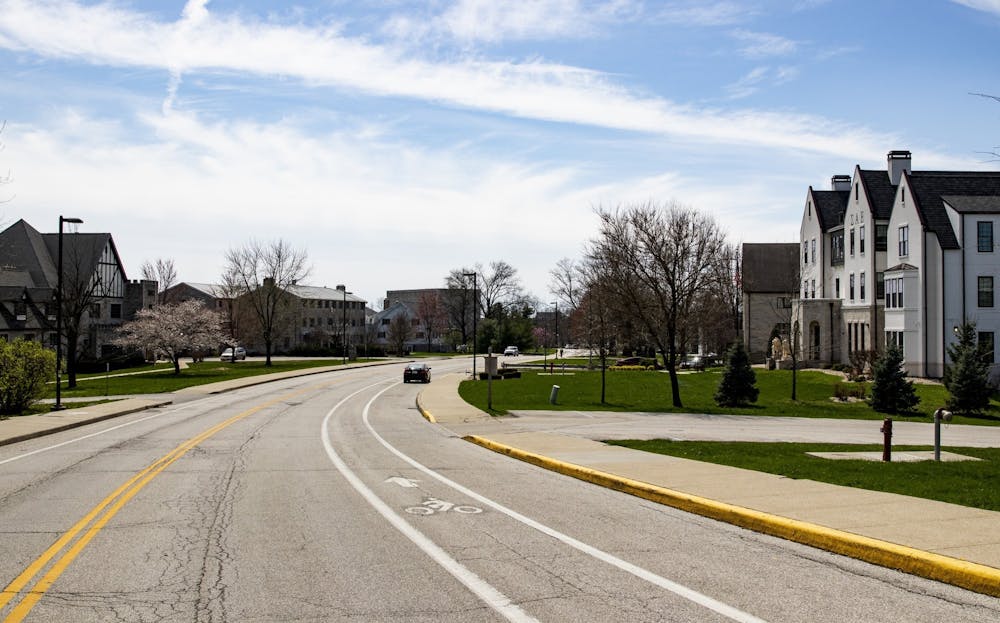A panel of IU and Monroe County experts at a special edition of the “Ask Aaron” webinar discussed potential changes in living capacity and COVID-19 restrictions Wednesday night, specifically addressing sorority and fraternity life.
IU spokesperson Chuck Carney and IU’s director of mitigation testing Dr. Aaron Carroll joined other experts at IU and in Monroe County to answer questions on the COVID-19 pandemic and its influence on greek life, academics and events both on and off IU’s campus.
Greek Life
Carroll said current rates of COVID-19 infections among sororities and fraternities are not concerning, but he said he was concerned about COVID-19 variants. He said there is still a need for caution even as infection rates decrease among Hoosiers.
Carroll said communal living involves people living closer together which leads to faster virus spread, pointing to outbreaks among sororities and fraternities at IU last semester.
As COVID-19 vaccinations increase in Indiana, capacity for greek houses could increase from the current 75% capacity enforced by the Monroe County Health Department. No definite changes to that limit have been planned for the fall semester as of yet, Monroe County Health Administrator Penny Caudill said.
“Currently, and this was a discussion at the last board meeting, the board felt that it was just too early to really make a commitment to a change for the fall, knowing that in the houses we need to have isolation and quarantine plans and space,” she said.
Little 500
Last week it was announced that the 2021 Little 500 races moved from April 23 and 24 to May 26. The move came primarily over concerns of out-of-town visitors bringing in new infections and coronavirus variants, Assistant University Director of Public and Environmental Health at IU Graham McKeen said.
McKeen said the extra time before the race presents an opportunity to decrease viral spread of COVID-19.
IU Associate Vice Provost for Student Affairs Kathy Adams Riester said the move would allow for a safer event that would be more focused on the race instead of the parties which usually surround the Little 500.
Monroe County COVID-19 restrictions
The Monroe County Board of Health is meeting regularly to review data and potentially make changes in COVID-19 restrictions, Caudill said.
Caudill said any changes determined by the board about gathering sizes would be small and incremental.
“I think Dr. Carroll mentioned earlier that if you just sort of willy nilly open everything up, then you have a much bigger problem,” Caudill said.
IU Director of Vaccine Initiatives Dr. Lana Dbeibo said the decrease in infection rates in Monroe County is due to the restrictions such as gathering limits, masking and sanitation. She said she does not want to see a surge in cases if restrictions were eased.
NCAA Tournament at IU
The decision to allow fans outside of families of team members or staff to attend the NCAA tournament at other locations and in Bloomington came from the NCAA, not IU, Carroll said. IU chose to allow only friends and family of players, vaccinated first responders and medical personnel from Monroe County, up to 500 people, to attend the tournament games instead of having fans traveling in from outside of the county.
Bloomington is the only NCAA Men’s Basketball Tournament site in Indiana to limit crowds to less than 25% capacity, the maximum allowed by the NCAA.
Motivations for in-person classes
Carroll said a Cornell University study showed that investments in testing, isolation and contact tracing at Cornell generated significantly fewer infections over its in-person semester as opposed to an entirely virtual semester. Carroll said the study provided a compelling argument for a safe in-person fall semester at IU.
Carroll said the decision to hold the fall semester of classes in-person at IU was not about money, but about making the community safer.
“We're seeing fewer and fewer cases in our community, things have been very stable, and I think it's not unreasonable in those situations to talk about ‘what can we do that we could not do before?’” he said.




